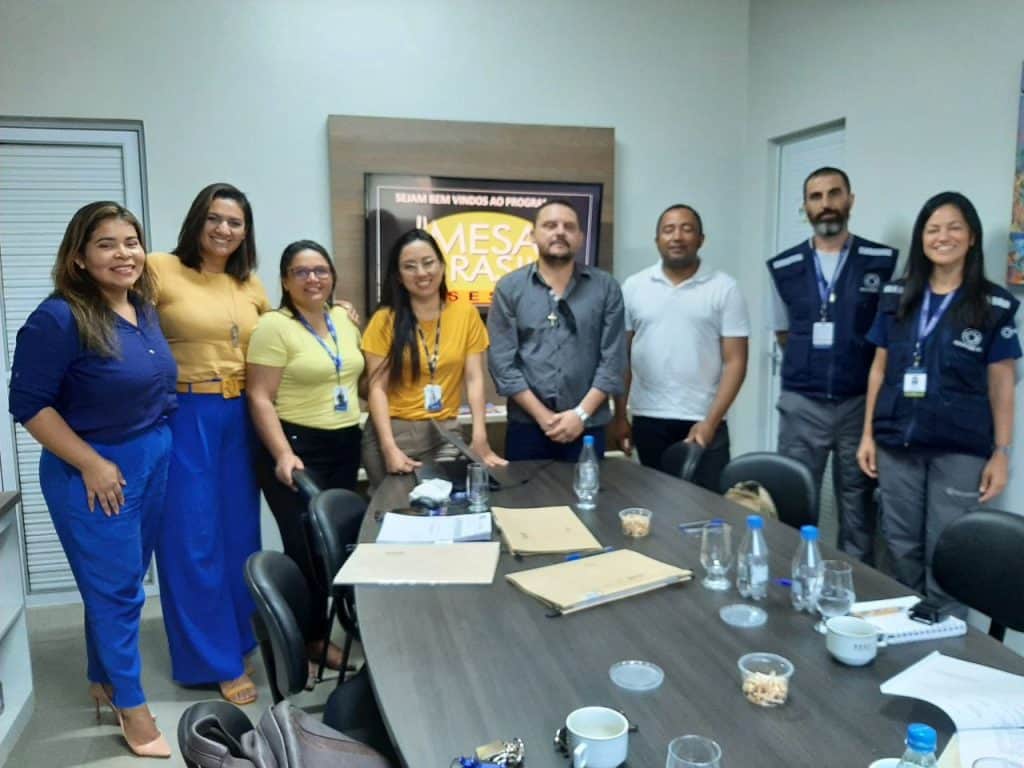The Fraternity – International Humanitarian Federation(FIHF) was among the 4 organizations selected by the Mesa Brazil Program – SESC of Boa Vista, Roraima, from the 25 enrolled, becoming one of a group of 64 organizations that are already part of the Program and will be ready to receive food which will be passed on to indigenous and non-indigenous communities and associations.
Among the organizations that through the intermediary of theHumanitarian Fraternity (FIHF) received a donation of more than 2 tons of maize there is: the Indigenous Immigrant Women’s Organization (OMIR), the Indigenous Najakara Moorü Council (CINAMO) and the City Indigenous Organization (ODIC).


The coordinator of the Roraima Humanitarian Mission, Cristiane de Oliveira Ferreira Soares, explains that “these actions reduce the effects of hunger and food waste, contributing to the food and nutritional security of the most vulnerable people, such as the indigenous Venezuelan immigrants who are living outside of the shelters.”
The Mesa Brazil Program – SESC is the largest network of food banks in Latin America, and is considered a reference in the fight against hunger and food waste. It works alongside partners – such as food distribution and supply centres, street markets, wholesale and retail networks and the food industry – that donate surplus production or products outside of commercialization standards but in safe conditions for consumption.
Companies from the most varied sectors make their resources and services available for this initiative. The program serves thousands of vulnerable people daily through registered social assistance and humanitarian institutions, such as the Humanitarian Fraternity (FIHF).


Hunger and Food Waste
In Brazil, thousands of people suffer from a lack of nutrition and illnesses due to lack of adequate food. Data from the National Survey on Food Insecurity within the Context of the Covid-19 Pandemic, show that the number of families in the country with children up to the age of 10 suffering from hunger doubled between 2020 and 2022. And the total number of people suffering from hunger exceeded 33 million.
Making this data even more striking, a UN survey shows that Brazil, per year, wastes close to 27 million tons of fruit, vegetables, legumes and other food in perfect conditions that are not sold in places such as street markets, supermarkets and restaurants, and end up in the trash. It is exactly at this point of the chain of production and distribution of food that programs such as Mesa Brazil – SESC and organizations such as the HumanitarianFraternity (FIHF) enter in, contributing to rebalancing this equation so difficult to close.
Food and Nutritional Security
According to the Organic Law on Food and Nutrition Security (LOSAN) of 2006, Food and Nutrition Security – FNS is understood to mean the realization of the right of everyone to regular and permanent access to quality food, in sufficient quantity, without compromising access to other essential needs, based on health-promoting dietary practices that respect cultural diversity, and are environmentally, culturally, economically and socially sustainable.
The integration of the Humanitarian Fraternity (FIHF) into the Mesa Brazil Program, therefore, represents an important step for the institution, since in addition to guaranteeing the food security of indigenous Venezuelans, it expands its performance on the national scene by engaging in a program aimed at reducing food waste.







